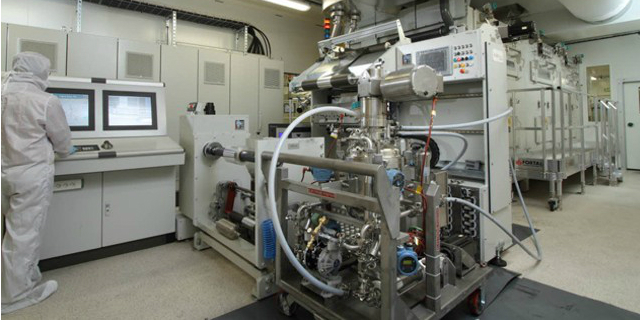Spartacus to develop advanced battery sensors
The ‘Spartacus’ project has recently started to develop advanced sensors and cell management systems for batteries. The researchers hope to be able to reduce charging times by up to 20 per cent without compromising the reliability and service life of the batteries.
The name Spartacus is an abbreviation that stands for “Spatially resolved acoustic, mechanical and ultrasonic sensing for smart batteries”. The European Union is funding the project as part of the research initiative ‘Battery 2030+’. Project coordinator is Gerhard Domann from the Fraunhofer Institute for Silicate Research in Würzburg. “Electric vehicles are already fast and quiet, but a major shortcoming so far is the long charging time compared to vehicles that are refuelled with fossil liquid or gaseous fuels,” Domann outlines the initial situation. Up to now, it has been mainly battery chemistry and design and the associated battery management system that have prevented faster charging in order to protect the batteries from premature aging.
At present, the integrated battery management system thus ensures a moderate operating mode that does not exhaust all the battery’s performance reserves. The Spartacus project consortium wants to exploit this potential. The researchers are relying on novel integrated sensors to monitor the actual battery condition in order to protect the battery. The idea is to develop a “low-cost sensor array technology for lithium-ion batteries combined with the concept of a cell management system for data prepossessing ensuring optimal charging and discharging depending on the battery’s condition,” the Fraunhofer Institute ISC says. The project focuses on mechanical and acoustic sensors, supplemented by electrochemical impedance measurements and temperature sensors.
“With the Spartacus sensor technology, errors and negative influences on battery life and performance should be detected at an early stage. Based on the sensor data, the cell and battery management system can control the charging and discharging processes accordingly to counteract premature battery aging and eliminate negative influences as far as possible,” explains Gerhard Domann. The Fraunhofer ISC is contributing its expertise in the development of intelligent sensors and in the analysis of aging processes in battery components.
“The causes of premature battery aging have been preoccupying us for a long time, and we have refined our methodology in a number of projects to clarify these processes and find possible solutions,” says project manager Jochen Settelein from the Fraunhofer ISC. Important preliminary work in the field of intelligent sensor technology has led to new approaches based on acoustic and mechanical monitoring with ultrasonic and elastomer sensors to detect mechanical stress and changes in the battery cell. The Spartacus project will build on this.
In addition to the Fraunhofer Institute ISC, the research institutions CEA from France, CSEM from Switzerland, Vrije University Brussels and Fundacion Cidetec from Spain are involved in Spartacus. Arkema and ElringKlinger from industry are also on board. The EU is providing a good 3.8 million euros for the project, which will run until the end of August 2023.
Spartacus was launched in September with six other projects as part of the European research initiative BATTERY 2030+. This major cross-sectoral project is one of the extensive initiatives in this field. It is part of the European Battery Alliance, which Maroš Šefčovič, Vice President of the European Commission, launched in 2017.
BATTERY 2030+ was launched in March 2019 and brings together players from scientific and industrial battery research and technology. The core group comprises 17 organizations from nine European countries, coordinated by Kristina Edström, Professor of Inorganic Chemistry at the University of Uppsala. In April, the group presented the long-term roadmap for the development of sustainable battery technologies.





0 Comments